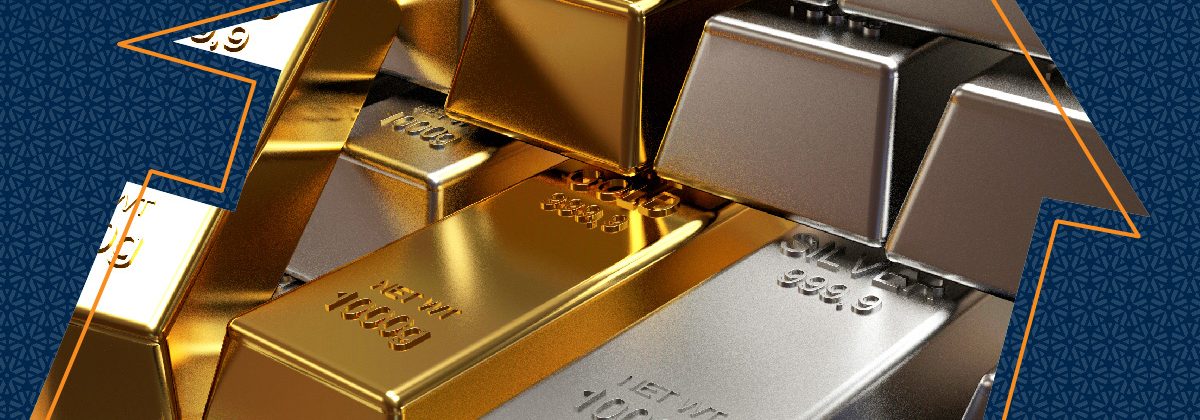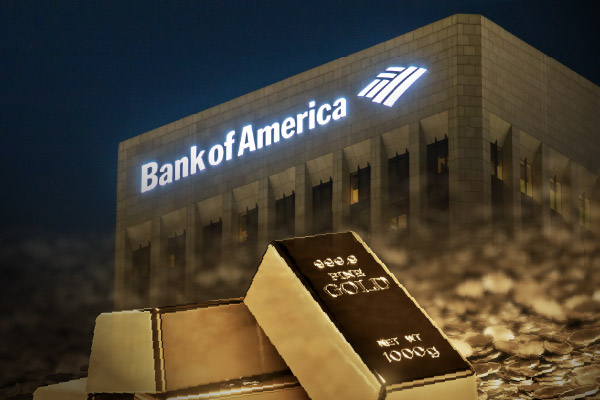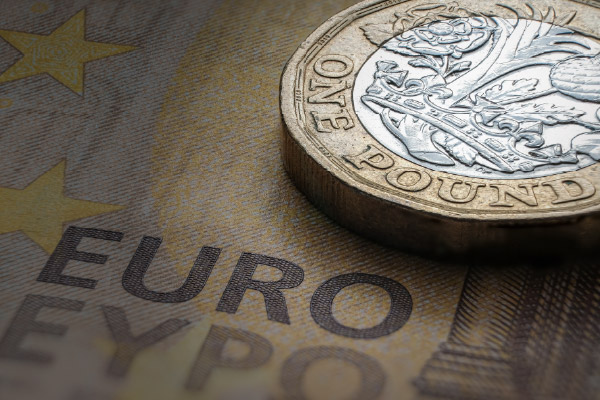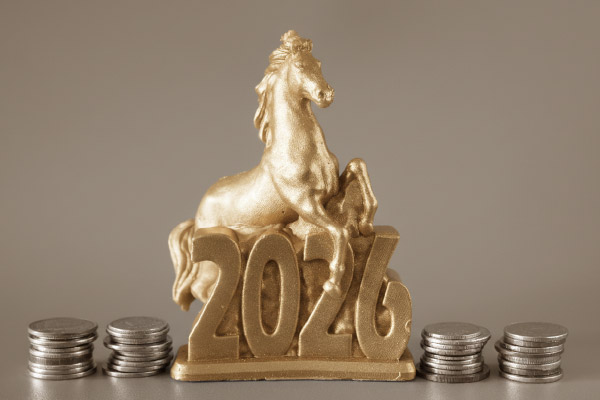How Do Interest Rates Impact Gold and Silver Prices?

The US Federal Reserve (Fed) lowered its benchmark interest rates, for the first time in 4 years, on September 18, 2024. The 50 basis points (bps) cut was higher than the widely expected reduction of only 25 bps. The announcement triggered a rally in precious metals. Gold prices surged to just 7 cents shy of the $2,600 resistance level, while silver prices rose 3% on the day. Fed Chairman Jerome Powell’s statements indicating further rate cuts of 50bps by the end of the year also supported gold and silver prices.
Fed’s interest rate decisions drive market sentiment across asset classes. Understanding how they move XAU/USD and XAG/USD can help you make informed decisions when trading precious metals.
Impact of Interest Rates on Gold and Silver Prices
Gold and silver are among the costliest commodities traded and are considered safe havens. This is the reason changes in interest rates have a more pronounced impact on their prices.
Opportunity Cost
Gold and silver do not offer dividends or interest. The attraction to precious metals is based on changes in their price alone.
Every investor has a limited amount of funds and decides which assets to hold. When money is invested in one asset, the investor foregoes the potential benefits of investing in some other asset. This is known as opportunity cost, or alternative cost, of holding an asset.
When interest rates rise, investors tend to take out funds from assets that do not yield any interest, like gold and silver, and invest this money in interest-generating options, like certificates of deposit (CDs), bonds, bond funds and dividend stocks. Many of these assets do not significantly rise in value but the investor earns interest. This is the reason why interest rate hikes by leading central banks weigh on XAU/USD and XAG/USD.
When interest rates decline, the attractiveness of staying invested in interest-generating assets goes down. The interest foregone by holding gold or silver is much lower. In other words, the opportunity cost of holding gold and silver goes down. This increases the attractiveness of holding gold and silver, pushing up the price of these two precious metals.
Softness in US Dollar Makes Metals Cheaper
The US dollar is the most widely used currency for international trade. In the global financial markets, the greenback is the standard currency in which assets are quoted and traded.
An increase in interest rates by the Fed makes investing in the US more attractive. Investors convert their currencies to US dollars to benefit from the higher interest rates, which boosts demand for the greenback and leads to an appreciation. In 2021 and 2022, the US dollar approached record highs amid interest rate hikes by the Fed.
As the US dollar appreciates, the cost of purchasing gold and silver rises for foreign currency holders. This reduces the demand for these precious metals. Lower demand exerts downward pressure on XAU/USD and XAG/USD.
Similarly, when the Fed lowers interest rates, the US dollar depreciates, making gold and silver cheaper for foreign currency holders. This increases the demand for these precious metals, lending support to gold and silver prices.
For instance, gold climbed almost 25% from the beginning of 2024 to September, with traders speculating interest rate cuts by the Fed.
Competition Among Safe Havens
Precious metals are only one of the safe haven categories. Other safe havens include US government bonds and cash, which offer very low to no returns. The US dollar, euro, Japanese yen, and Swiss franc are safe haven currencies, because of the stable economic and political systems in the respective regions. Traders tend to diversify investments into currencies from precious metals to optimise gains and keep risk within their tolerance limits.
Competition among safe havens weighs on the price of precious metals, especially during monetary tightening. As central banks raise interest rates, the respective currency becomes more attractive, and traders redirect their investments towards it.
Rising interest rates worldwide and a soaring US dollar weighed on gold prices in 2022. This is despite the fact that demand for the yellow metal remained robust due to inflation and geopolitical unrest as the Russia-Ukraine war intensified. However, the headwinds from rising interest rates drove traders toward the euro and the greenback, affected gold prices that year.
Economic and Geopolitical Uncertainties
Geopolitical conflicts, recession, widespread natural disasters, and pandemics test the resilience of economies. Historically, precious metals have been counter-cyclical to the economy. Therefore, XAU/USD and XAG/USD tend to rise on news of growing geopolitical tensions or economic distress. Similarly, when inflation exceeds interest rates, investing in gold appeals to traders as a way of protecting their purchasing power. The demand pull drives gold prices higher.
Gold prices surged after the news of the Hamas attack on Israel in October 2023. The XAU/USD climbed 2%, or $37, within 4 days of the attack. Investors speculated the adverse impact of the attack on oil supply chains and flocked to the yellow metal. Tailwinds from speculations of the Fed lowering interest rates supported investor sentiment in gold.
Maximising Trading Opportunities
Interest rate updates tend to create abundant trading opportunities. Using derivatives like contracts for differences (CFDs enables you to participate in both rising and falling markets. CFDs are traded with leverage, which lowers the entry barrier to precious metal markets. This means you can amplify your purchasing power and explore more opportunities. It’s important to bear in mind, however, that leverage increases the risk of losses as much as amplifying potential gains. Using risk management techniques, such as stop loss and take profit, are critical.
To Sum Up
- High interest rates increase the opportunity cost of trading non-yielding precious metals.
- An increase in interest rates by the Fed triggers an appreciation in the US dollar, making precious metals more expensive for foreign currency holders and weighing on prices.
- Attractive opportunities in other safe havens encourage traders to diversify out of XAU and XAG.
- Gold and silver prices tend to rise during periods of economic and geopolitical uncertainties.
- Trading CFDs offer opportunities in both rising and falling markets for gold and silver.
Disclaimer:
All data, information and materials are published and provided “as is” solely for informational purposes only, and is not intended nor should be considered, in any way, as investment advice, recommendations, and/or suggestions for performing any actions with financial instruments. The information and opinions presented do not take into account any particular individual’s investment objectives, financial situation or needs, and hence does not constitute as an advice or a recommendation with respect to any investment product. All investors should seek advice from certified financial advisors based on their unique situation before making any investment decisions in accordance to their personal risk appetite. Blackwell Global endeavours to ensure that the information provided is complete and correct, but make no representation as to the actuality, accuracy or completeness of the information. Information, data and opinions may change without notice and Blackwell Global is not obliged to update on the changes. The opinions and views expressed are solely those of the authors and analysts and do not necessarily represent that of Blackwell Global or its management, shareholders, and affiliates. Any projections or views of the market provided may not prove to be accurate. Past performance is not necessarily an indicative of future performance. Blackwell Global assumes no liability for any loss arising directly or indirectly from use of or reliance on such information here in contained. Reproduction of this information, in whole or in part, is not permitted.




